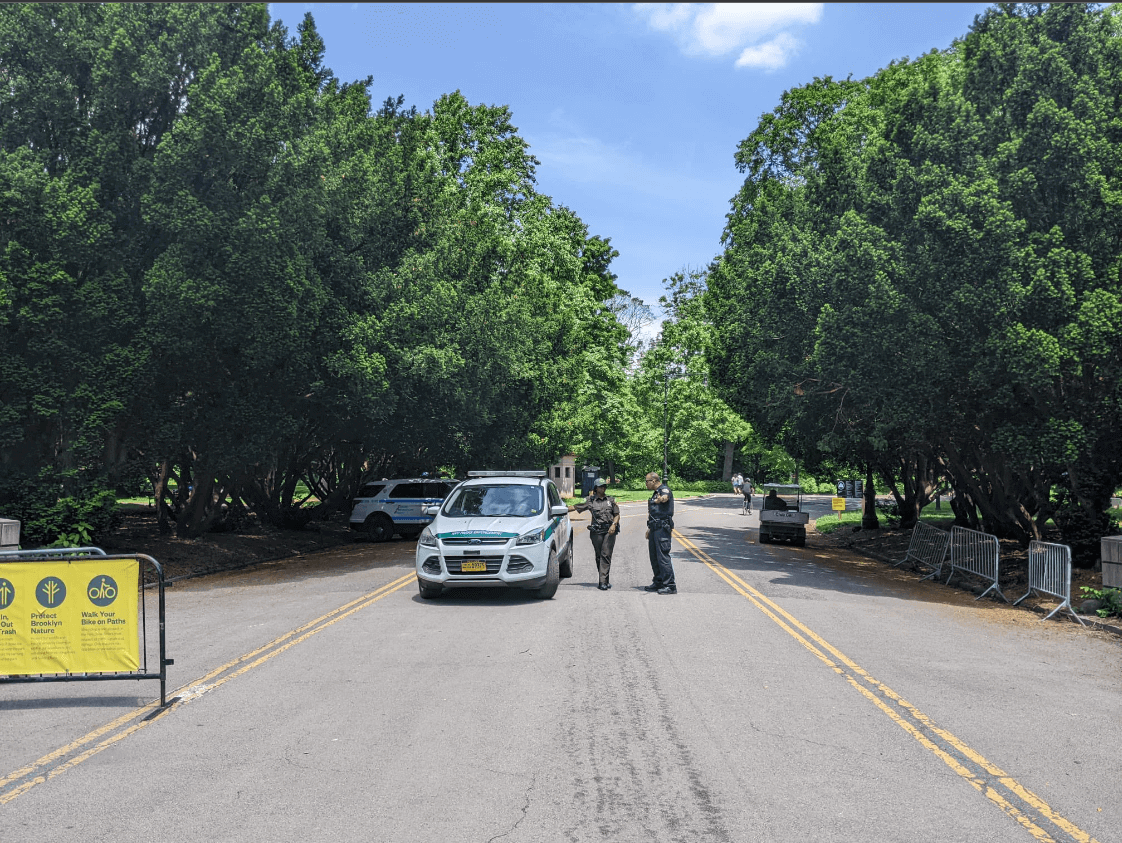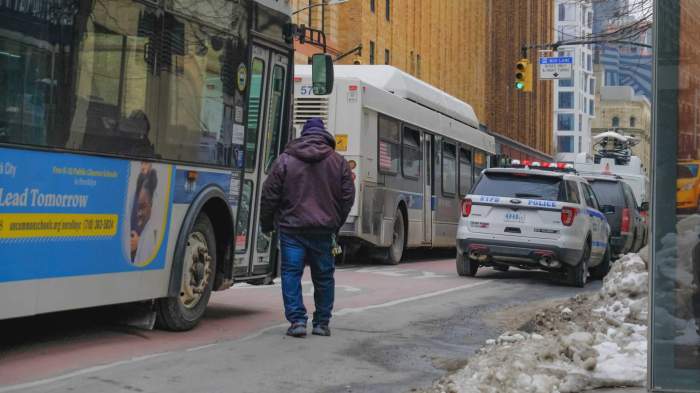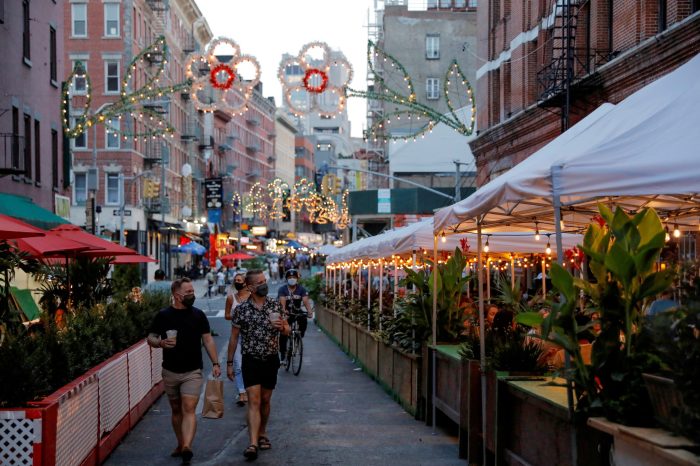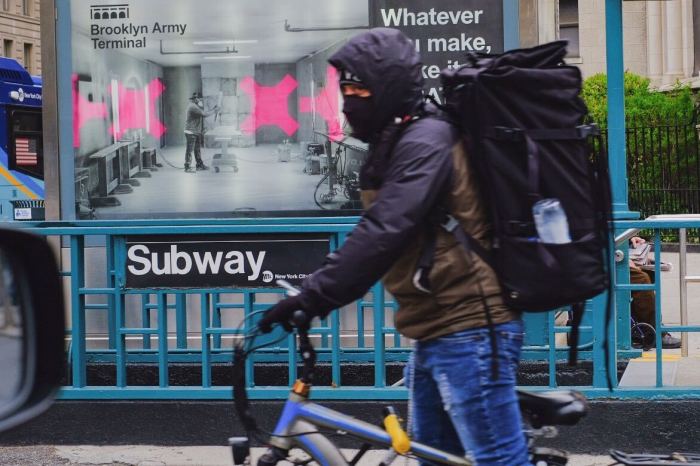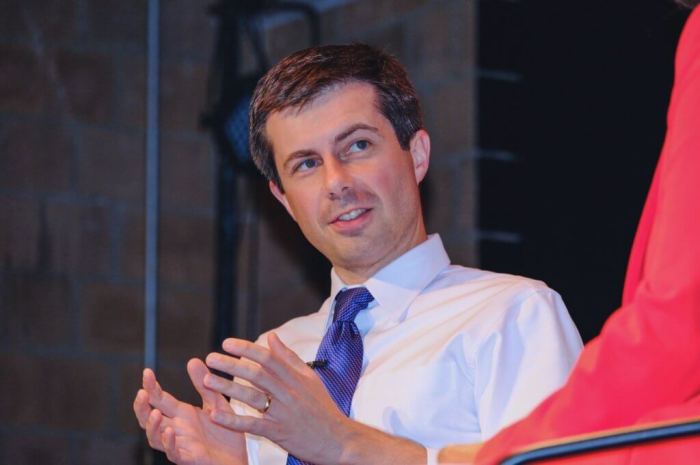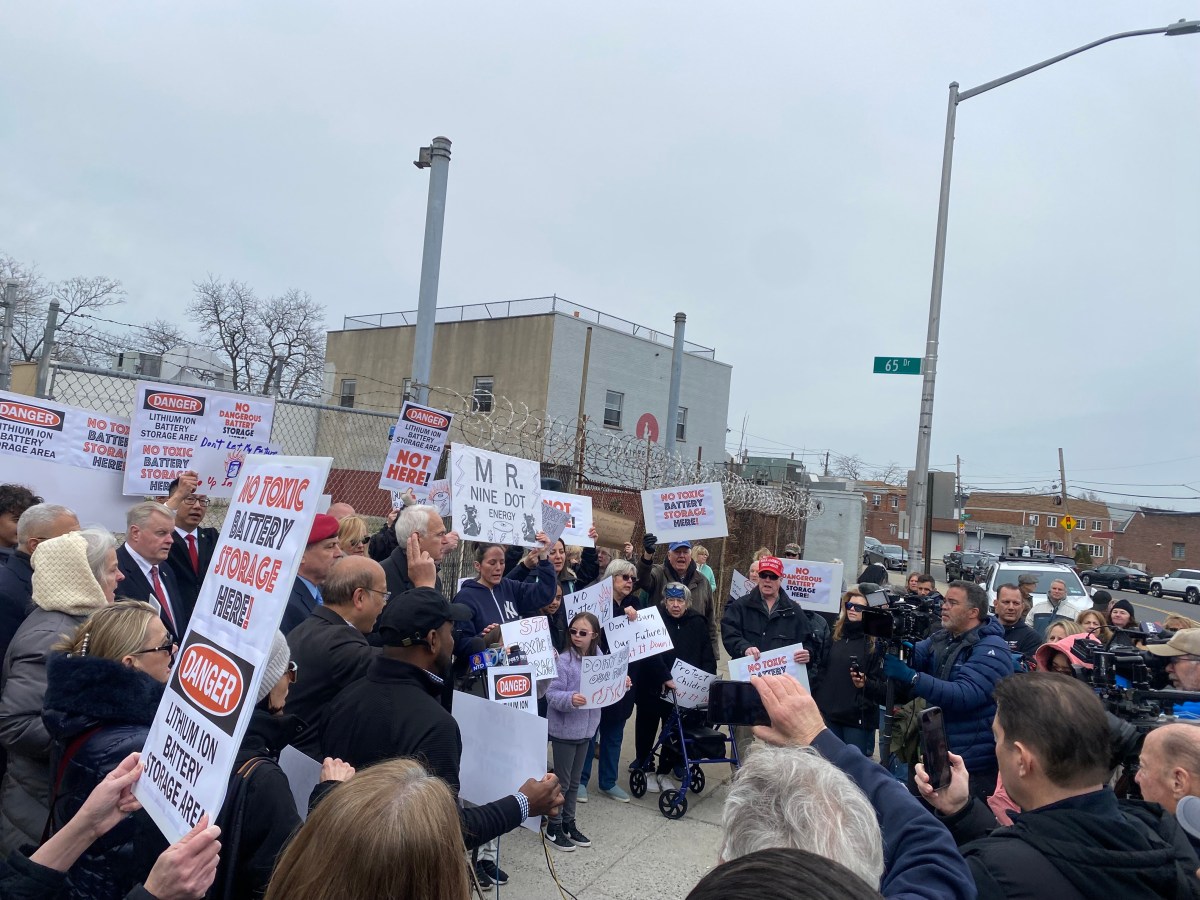A group of Brooklyn pols are petitioning the Parks Department to end its ban on electric bikes in Prospect Park, arguing riders are being unfairly punished or even ticketed while just trying to get home or to work.
City Councilmembers Crystal Hudson, Shahana Hanif, and Rita Joseph, who represent Prospect Park and its surrounding neighborhoods, sent a letter on Tuesday to Parks Commissioner Sue Donoghue, urging the department to develop a new e-bike policy and overturn the ban, which keeps e-bikers legally out of Brooklyn’s backyard years after the mobility devices were legalized on the city’s streets.
“We acknowledge the safety concerns that Prospect Park faces regarding e-bikes that led to the ban,” the pols wrote in their letter. “However, e-bikes are legal to ride on New York City streets and make moving around the city more accessible without adding more pollution and congestion to our streets and parks via cars or environmentally unfriendly forms of transportation.”
E-bikes are legal under city and state law. Pedal-assist and throttle e-bikes were legalized statewide in 2020, and the city’s Department of Transportation permits riding throttle bikes with “operable pedals” traveling up to 25 miles per hour on city streets. Most e-bikes have a top speed of around 28 mph, according to manufacturer Gazelle, though some models can go much faster.
But the Parks Department classifies e-bikes, e-scooters, and mopeds as “motor vehicles,” which are banned from operating in parks except on “designated park roads, greenways, and parking areas” under agency bylaws regulating “disorderly behavior.” Prospect Park and other municipal greenspaces now have signs at various entrances announcing that e-bikes are prohibited.
The state’s legalization language created a carveout allowing municipalities to still regulate e-bikes as they see fit, enabling the Parks Department to create its own stricter guidelines, despite many city parks housing Citi Bike docks where riders can rent e-bikes. And the rule doesn’t go unenforced, with Parks Police or NYPD officers often stationing at entrances to Prospect Park and other greenspaces prepared to write $150 tickets.
“Simply put, the Parks Department has no justification for classifying e-bikes in the same category as SUVs or trucks at all,” said Hudson, Hanif, and Joseph. “And the Parks Department’s current blanket ban on e-bikes in Prospect Park sends the wrong message about our city’s values.”
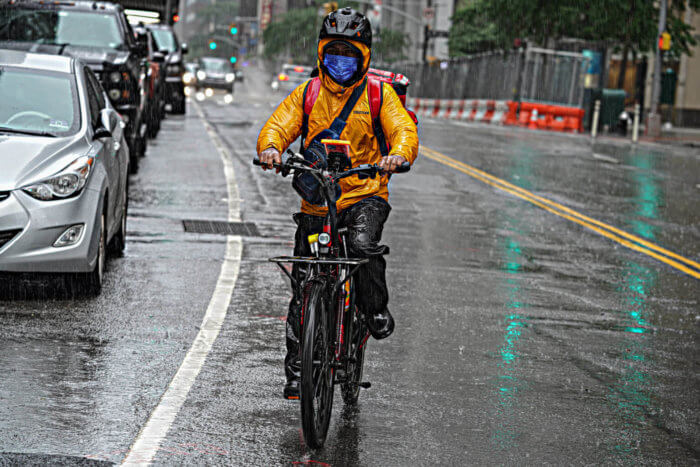
New York’s most prolific e-bike users are food delivery couriers, but the pols note that the devices have been taken up by all manner of New Yorkers in recent years as they’ve become more popular.
“E-bike users include delivery workers who keep us fed, families on cargo bikes, individuals recovering from surgery, older adults, people who live in areas with fewer public transit options, those who want to limit their carbon footprint by not driving cars, and so many more,” they wrote. “In other words, e-bike users are all New Yorkers. As a city, we should be encouraging e-bike usage instead of creating zones of inaccessibility within the city.”
The legislators said they hope to work with the Parks Department to “establish a community engagement process” allowing e-bikes in the park while addressing the agency’s outlying safety concerns.
The Parks Department did not respond to a request for comment by press time. The Prospect Park Alliance, the nonprofit that stewards Brooklyn’s Backyard, declined to comment.
Other political leaders have also recognized that e-bikes are here to stay. In their “New New York” program, Governor Kathy Hochul and Mayor Eric Adams said e-bikes could be a “game-changer” for transportation in the city.
“E-bikes could be a game-changer for New York City,” wrote the governor and mayor, “reducing congestion, reducing the carbon footprint of those who switch from cars or for-hire vehicles, and reducing commute times for those who switch from walking or human-powered bicycles.”
The duo lent their support to a bill that would create a state rebate of up to 50% for e-bike purchases, aiming to incentivize carbon-free travel.
They also put their weight behind a measure enabling access to low-interest credit for delivery couriers to replace their batteries, in the hopes that would disincentivize buying used batteries that have been blamed for a rash of deadly fires across the city. That would come as city lawmakers consider bills banning third-party batteries due to their liability to cause out-of-control infernos.
Transportation Alternatives, the safe streets and cycling advocacy group, praised the pols for going to bat for e-bikers.
“E-bikes make moving around our city more accessible to more people, while also reducing vehicle usage by replacing car trips,” said Kathy Park Price, TransAlt’s Brooklyn organizer. “Prospect Park’s outright ban on e-bikes — which are legal to ride on New York City streets — makes Prospect Park’s car-free bike lanes unusable to far too many New Yorkers, including delivery workers who rely on e-bikes for their work and many families. We encourage the Prospect Park Alliance and NYC Parks to work together to create a more inclusive policy that allows e-bikes.”



